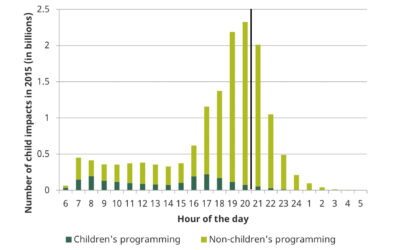New advertising restrictions on junk food are being introduced as part of a government bid to tackle childhood obesity.
From the end of next year, advertising for foods, which are high in fat, salt and sugar (HFSS) will only be allowed to air between 9pm and 5.30am.
This will apply to television and UK on-demand programmes, plus online paid-for advertising.
According to a public consultation, 79% of respondents supported a 9pm watershed on TV while 74% agreed with the introduction of further HFSS advertising restrictions online.
“We are committed to improving the health of our children and tackling obesity. The content youngsters see can have an impact on the choices they make and habits they form. With children spending more time online it is vital we act to protect them from unhealthy advertising,” stated Public Health Minister, Jo Churchill.
“These measures form another key part of our strategy to get the nation fitter and healthier by giving them the chance to make more informed decisions when it comes to food. We need to take urgent action to level up health inequalities. This action on advertising will help to wipe billions off the national calorie count and give our children a fair chance of a healthy lifestyle.”
The new rules will only apply to food and drink, which the government believes are “of most concern to childhood obesity”, so products including honey, olive oil, avocados and marmite are excluded.
They will also not apply to businesses which have fewer than 250 employees, because “these companies may be some of the hardest hit by the pandemic and rely on online media as the sole way to communicate with their customers.”
Online restrictions will be limited to paid-for advertising, so brands can still use blogs, websites, apps and social media pre-watershed.
The government believes that the changes to TV and online advertising could remove “up to 7.2 billion calories from children’s diets per year in the UK.”
The Advertising Association said it was “dismayed” by the decision:
“This means many food & drink companies won’t be able to advertise new product innovations and reformulations and larger food-on-the-go, pub and restaurant chains may not be able to tell their customers about their menus,” said Sue Eustace, Public Affairs Director, Advertising Association.
“Content providers – online publishers and broadcasters – will lose vital advertising revenue to fund jobs in editorial and programme-making. We all want to see a healthier, more active population, but the Government’s own analysis shows these measures won’t work. Levelling up society will not be achieved by punishing some of the UK’s most successful industries for minimal effect on obesity levels.”











